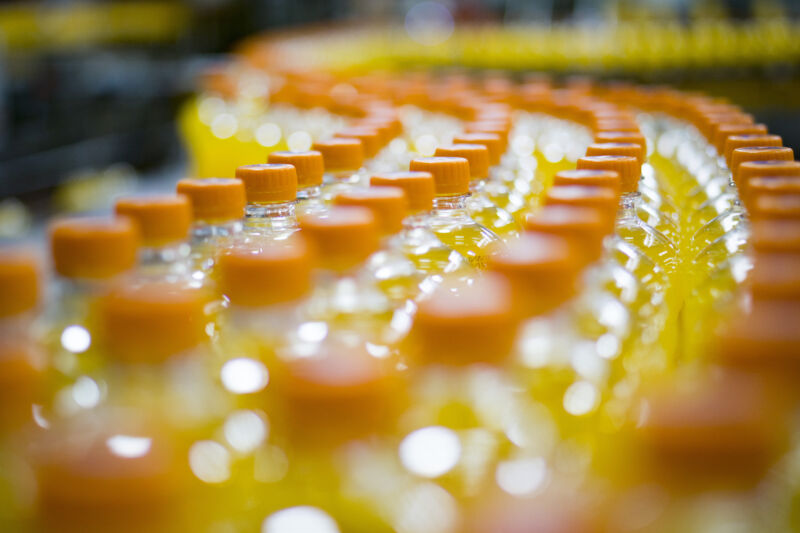Soda additive “no longer considered safe,” gets long-awaited FDA ban

Enlarge / Tops of citrus sodas at a manufacturing plant. (credit: Getty | Vincent Mundy)
After more than five decades of limbo, the Food and Drug Administration on Wednesday revoked the authorization of brominated vegetable oil (BVO) in food, banning an additive long known to have toxic effects that is already banned in Europe, Japan, Australia, New Zealand, and California.
BVO—simply vegetable oil that is modified with bromine—has been used in foods since the 1920s. It has often been used as a stabilizer for fruit flavorings, particularly in citrusy beverages, including sodas, to keep the citrus flavoring from separating and floating to the top. The FDA authorized use of BVO just after gaining the authority to regulate food additives in 1958. By the early 1960s, the FDA had put BVO on its first inventory of food additives it deemed generally safe—designated “generally recognized as safe” or GRAS. But safety concerns quickly surfaced, and by the late 1960s, the FDA had already limited its use to a flavoring stabilizer and capped the amount that could be used to 15 parts per million.
That 15-ppm limit was authorized on an “interim basis,” pending more safety studies. In 1970, the FDA revoked the GRAS designation for BVO, but continued to allow the 15-ppm limit—on an interim basis—given that safety studies “did not indicate an immediate health threat from the limited use.”



